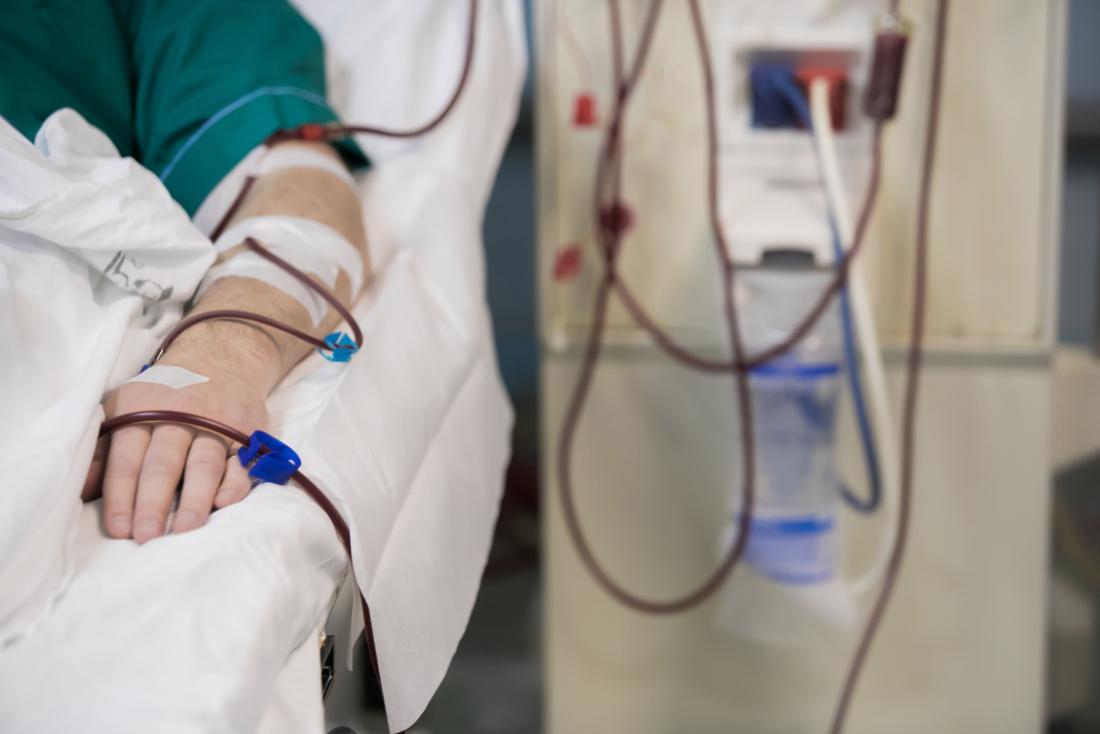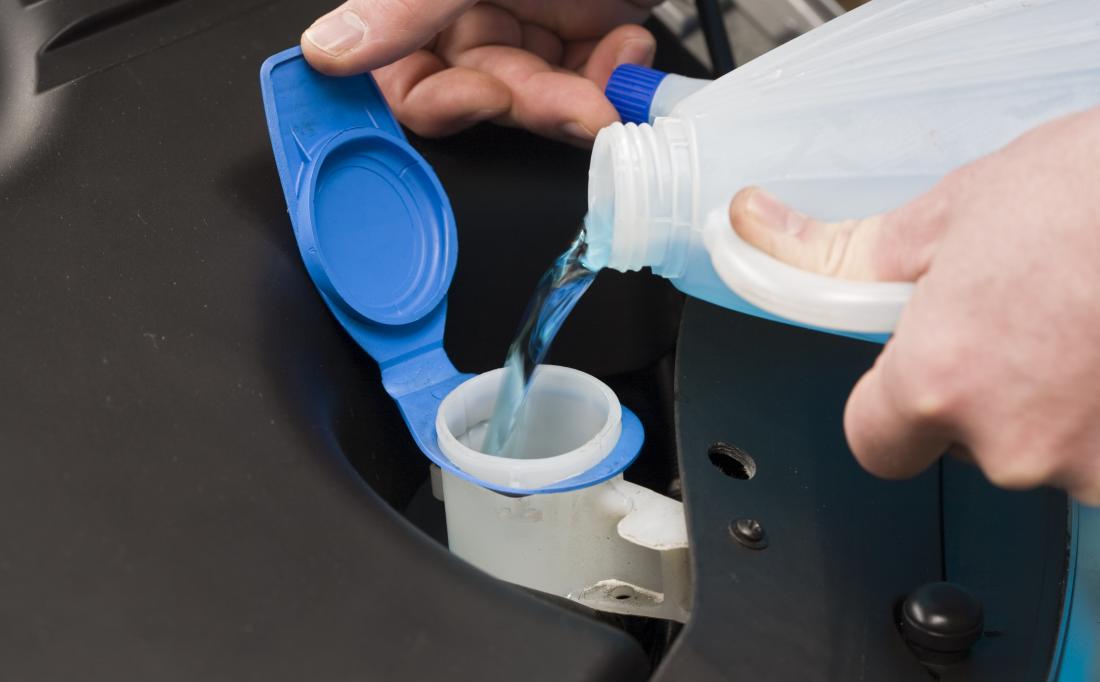People add antifreeze to vehicle radiators to prevent the liquid coolant inside from freezing and overheating. Antifreeze typically contains ethylene glycol, methanol, and propylene glycol.
Although the chemicals in antifreeze are relatively nontoxic, the body can metabolize them into highly toxic alcohol byproducts.
Symptoms of antifreeze poisoning may take time to develop, and they can be similar to alcohol intoxication
Anyone who suspects that they or someone else has ingested antifreeze should seek immediate medical attention or call the American Association of Poison Control Centers (AAPCC) for expert advice at 1-800-222-1222. The AAPCC helpline is open 24 hours and is toll-free.
In this article, we discuss what to do if someone ingests antifreeze. We also cover symptoms, treatment, and complications of antifreeze poisoning.
We also discuss what antifreeze is and tips for preventing accidental ingestion.
What to do

It is imperative that a person seeks immediate medical attention if they have ingested antifreeze.
A person should call 911 immediately or go straight to the emergency room if they suspect that they or someone else has ingested antifreeze.
It is vital to seek help, even if a person does not show or feel symptoms of antifreeze poisoning.
People who are unsure whether they or someone else has ingested antifreeze can also call the AAPCC for expert advice at 1-800-222-1222. The AAPCC helpline is open 24 hours and is a toll-free number.
Accidentally ingesting antifreeze can happen for many reasons. For example, children may drink antifreeze because ethylene glycol tastes sweet. However, manufacturers often add substances that make antifreeze taste bitter to reduce a person’s desire to drink it.
A person may accidentally drink antifreeze that someone has stored in an unlabeled container, such as a glass, food jar, or drinks bottle.
However, ingesting antifreeze is not always accidental. Some individuals may use antifreeze as an alternative source of alcohol.
Other people may intentionally ingest antifreeze as a means of self-harm or in an attempt to take their own life.
Suicide prevention
- If you know someone at immediate risk of self-harm, suicide, or hurting another person:
- Call 911 or the local emergency number.
- Stay with the person until professional help arrives.
- Remove any weapons, medications, or other potentially harmful objects.
- Listen to the person without judgment.
- If you or someone you know is having thoughts of suicide, a prevention hotline can help. The National Suicide Prevention Lifeline is available 24 hours a day at 1-800-273-8255.
Symptoms
Symptoms of antifreeze poisoning may not appear immediately after a person ingests it, as it takes time for the body to metabolize the chemicals.
The body converts the chemicals in antifreeze into smaller alcohols and acids. These can include:
- glycolaldehyde
- glycolic acid
- glyoxylate
- oxalic acid
The onset and severity of symptoms can vary according to several factors, such as the type and amount of antifreeze the person ingested.
In general, antifreeze poisoning occurs in three stages. We discuss each of these below:
First stage
The first stage of antifreeze poisoning typically begins between 30 minutes and 12 hours after a person ingests it.
The ethylene glycol in antifreeze affects the central nervous system first. Early symptoms of antifreeze poisoning may appear similar to those of alcohol intoxication.
These symptoms can include:
- loss of coordination
- slurred or jumbled speech
- dizziness
- fatigue
- headache
- euphoria
- nausea and vomiting
- seizures
- coma
Second stage
People generally enter the second stage of antifreeze poisoning 12–24 hours after ingestion.
During this stage, the body continues to metabolize the chemicals in antifreeze into toxic acids. These acids lower the pH level of the blood, which leads to a condition called metabolic acidosis.
At this point, antifreeze poisoning will start to affect multiple organs, including the kidneys, brain, lungs, and liver.
People in the second stage of antifreeze poisoning may experience:
A person may also lose consciousness or go into a coma at this stage. A doctor may suggest more aggressive treatments for a person in the second stage of antifreeze poisoning.
Third stage
The third stage of antifreeze poisoning occurs 24–72 hours after ingesting it.
If a person does not receive treatment, a buildup of calcium oxalate crystals can lead to kidney failure.
Treatment

A doctor may suggest hemodialysis to treat antifreeze poisoning.
Early diagnosis and treatment for antifreeze poisoning is essential to reduce a person’s risk of experiencing permanent organ damage and long-term health complications.
Treatment for antifreeze poisoning depends on:
- the type and quantity of antifreeze a person has ingested
- the amount of time that has passed since ingestion
- the type and severity of a person’s symptoms
Doctors focus treatment for antifreeze poisoning on:
- preventing the body from continuing to metabolize the antifreeze
- removing antifreeze and toxic metabolites from the person’s bloodstream
- providing supportive therapies, particularly in more severe cases that involve organ failure
Doctors prescribe antidotes, such as fomepizole and ethanol, to prevent a person’s body from metabolizing the chemicals in antifreeze into toxic metabolites.
Antidote therapy can help prevent further kidney damage but does not remove metabolites that have already collected inside the kidneys.
A doctor may then focus on returning the person’s blood pH to normal levels, such as by administering a bicarbonate solution through an intravenous line.
To remove unmetabolized antifreeze and toxic metabolites from the bloodstream, a doctor may also recommend hemodialysis.
During hemodialysis, a healthcare professional inserts a tube with a needle into a person’s arm. The tube connects to a dialysis machine.
The person’s blood flows along the tube into the machine, which filters out toxins and waste products. The filtered blood then passes through another tube back into the person’s arm.
Complications
It is essential to seek immediate medical treatment if a person suspects that they or someone else has ingested antifreeze.
Without prompt treatment, antifreeze poisoning can lead to serious complications. These complications can include:
What is antifreeze?
Antifreeze is a substance that people typically add to the liquid coolant inside car radiators. It contains chemicals that lower the freezing point and raise the boiling point of the engine coolant. Ingesting these chemicals can cause life-threatening symptoms.
Antifreeze typically contains ethylene glycol, methanol, and propylene glycol. Although these substances themselves are relatively nontoxic, the body rapidly metabolizes them into highly toxic alcohol byproducts.
Ethylene glycol is a water-soluble compound often present in household and car products. It is clear, odorless, and sweet-tasting, but it can irritate the eyes, skin, and airways.
If a person ingests products containing ethylene glycol, it can cause severe complications, such as kidney failure, permeant nerve damage, and, in some cases, death.
Methanol is a wood alcohol that manufacturers tend to use in paints, varnishes, and cleaners. Similar to ethylene glycol, methanol is highly toxic if a person ingests it.
Propylene glycol is a nontoxic substance. The Food and Drug Administration (FDA) approve the use of small quantities of propylene glycol in foods such as frostings and frozen dairy products.
Prevention tips

Keeping antifreeze in its original container can help prevent accidental antifreeze poisoning.
It is possible to prevent accidental antifreeze poisoning by:
- keeping antifreeze in its original container
- if it is necessary to transfer antifreeze to another container, labeling the container very clearly
- storing antifreeze in places out of reach of children, such as in a locked cabinet or on the top shelf of a cupboard
- carefully wiping up spilled antifreeze and thoroughly rinsing the affected area with soap and water
- choosing a safer antifreeze formula, such as products that use propylene glycol instead of ethylene glycol
Summary
Antifreeze poisoning is a medical emergency. Anyone who suspects that they or someone else has ingested antifreeze should call 911 or go straight to the emergency room. Do not wait for symptoms to appear before seeking help.
The symptoms of antifreeze poisoning can take time to develop. Early symptoms may appear similar to those of alcohol intoxication.
Antifreeze poisoning is life-threatening and can lead to permanent organ damage, so early diagnosis and treatment is essential.
